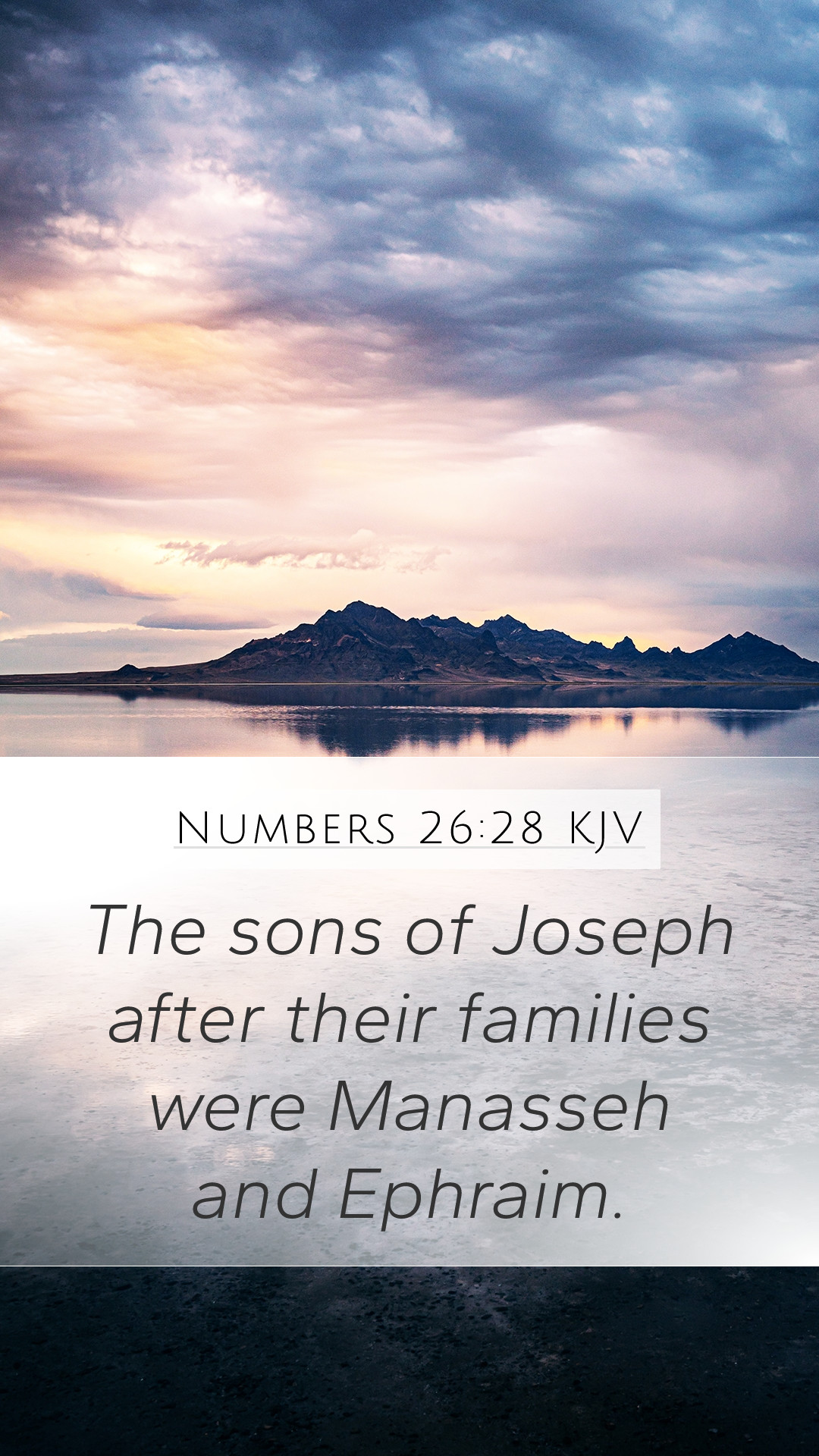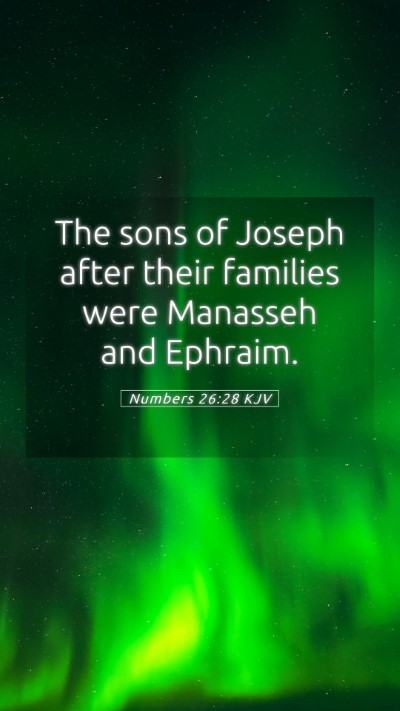Understanding Numbers 26:28
In this detailed exploration of Numbers 26:28, we delve into the meanings, interpretations, and explanations derived from public domain commentaries provided by influential theologians such as Matthew Henry, Albert Barnes, and Adam Clarke. This verse serves as a significant element within the broader context of the Book of Numbers, contributing to our understanding of the tribal enumeration and God's providence.
Verse Context
Numbers 26:28 reads: “The sons of Joseph after their families were Manasseh and Ephraim.” This verse lists the descendants of Joseph, emphasizing the importance of Joseph's lineage within the Israelite tribes. The specific mention of Manasseh and Ephraim reflects their substantial roles in the history of Israel and the fulfillment of God’s promises.
Insights from Commentaries
-
Matthew Henry's Commentary:
Henry emphasizes the significance of Joseph's sons as vital branches of the Israelite nation. Their mention not only indicates their positions but also highlights God’s faithfulness in maintaining the lineage of Joseph, who was a key figure in Egypt for the Israelites during famine.
-
Albert Barnes' Notes:
Barnes elaborates on the roles of Manasseh and Ephraim, describing them as significant in both military and spiritual leadership among the Israelites. He notes that their inclusion in this verse underscores the distribution of land and tribal inheritance, which was critical in fulfilling the promise made to Abraham, Isaac, and Jacob.
-
Adam Clarke's Commentary:
Clarke adds further depth to the understanding of the tribes, emphasizing the importance of their names and the blessings associated with their lineages. He points out how the tribes of Manasseh and Ephraim epitomize the fulfillment of God’s promises of multiplication and blessing, serving as a testament to God’s provision for His people.
Biblical Analysis
The enumeration of Joseph’s sons aids in grasping the historical context of the Israelites as they journey towards the Promised Land. Each name carries historical significance, linking back to the patriarchs and showcasing the continuity of God’s covenant with Israel.
Key Themes Highlighted
- Divine Promise: This verse reinforces the concept of God’s unwavering promise to Jacob regarding his descendants.
- Tribal Identity: Both tribes, Manasseh and Ephraim, are crucial for understanding Israel's later development, especially their role in the divided monarchy.
- God’s Providence: The specific mention implies God’s guiding hand over the lineage and destiny of His people.
Cross References
Other relevant scriptures that elucidate the themes present in Numbers 26:28 are:
- Genesis 48:5-6: The blessing of Joseph's sons by Jacob.
- Joshua 14:4: Distribution of land to the tribes.
- Deuteronomy 33:13-17: Moses’ blessings to the tribes.
Application of the Verse
When interpreting Numbers 26:28, modern readers can extract practical lessons applicable to daily life:
- Recognizing the importance of heritage and legacy in our lives.
- Understanding our identity in the faith community, akin to the tribes of Israel.
- Trusting in God’s promises and His providential guidance through our personal and communal journeys.
Conclusion
In summary, Numbers 26:28 offers rich insights into the heritage of the Israelite tribes and God's faithfulness to His promises. The interpretations drawn from various commentaries invite deeper reflection on the significance of names, lineage, and God's continuous providence throughout biblical history. For those engaging in Bible study groups, these insights can enhance discussions related to understanding Scripture and applying biblical lessons to our lives.


